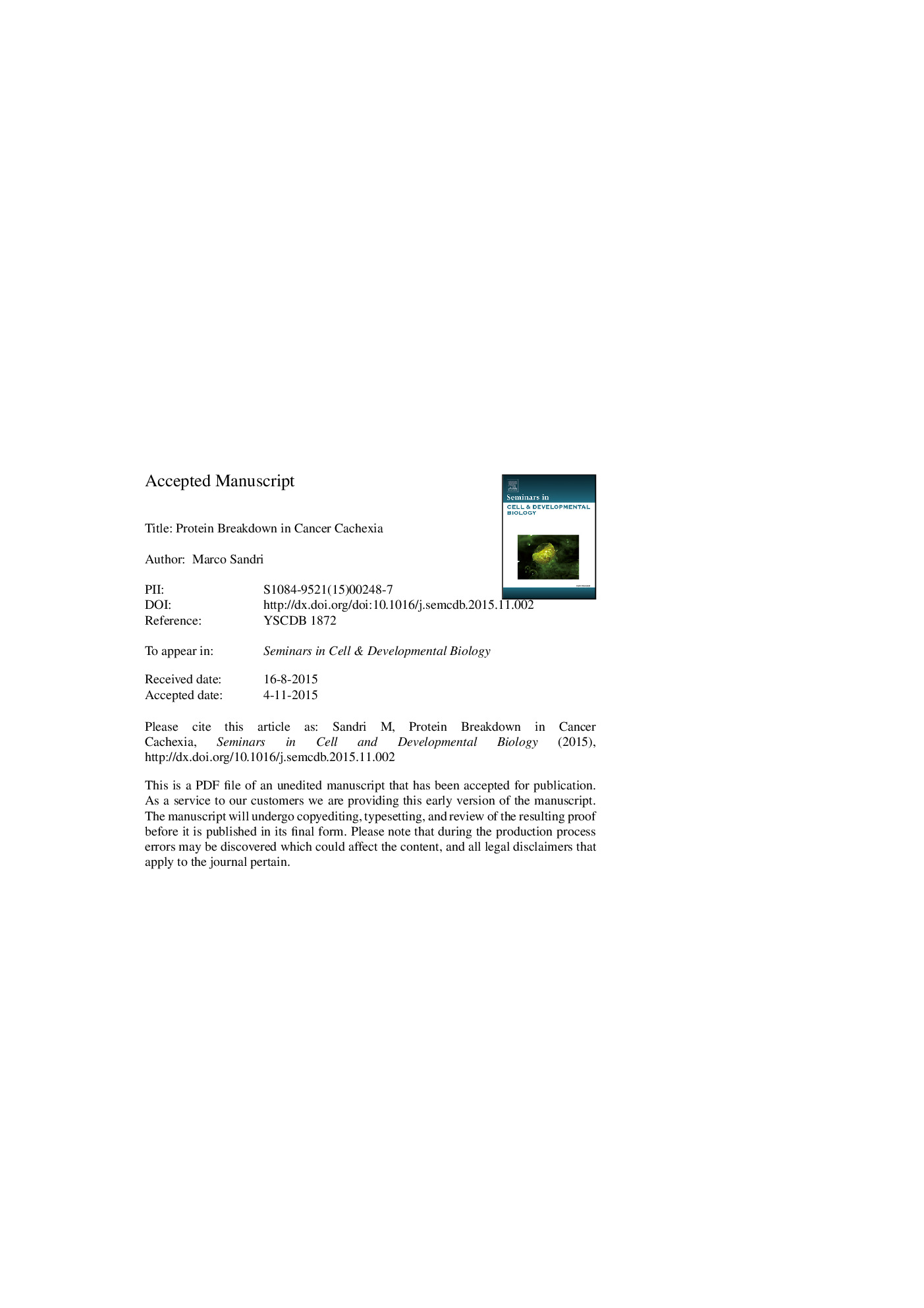| Article ID | Journal | Published Year | Pages | File Type |
|---|---|---|---|---|
| 8480042 | Seminars in Cell & Developmental Biology | 2016 | 27 Pages |
Abstract
Skeletal muscle is a highly adaptive tissue, capable of altering muscle fiber size, functional capacity and metabolism in response to physiological stimuli. However, pathological conditions such as cancer growth compromise the mechanisms that regulate muscle homeostasis, resulting in loss of muscle mass, functional impairment and compromised metabolism. This tumor-induced condition is characterized by enhanced muscle protein breakdown and amino acids release that sustain liver gluconeogenesis and tissue protein synthesis. Proteolysis is controlled by the two most important cellular degradation systems, the ubiquitin proteasome and autophagy lysosome. These systems are carefully regulated by different signalling pathways that determine protein and organelle turnover. In this review we will describe the involvement of the ubiquitin proteasome and autophagy lysosome systems in cancer cachexia and the principal signalling pathways that regulate tumor-induced protein breakdown in muscle.
Related Topics
Life Sciences
Biochemistry, Genetics and Molecular Biology
Cell Biology
Authors
Marco Sandri,
